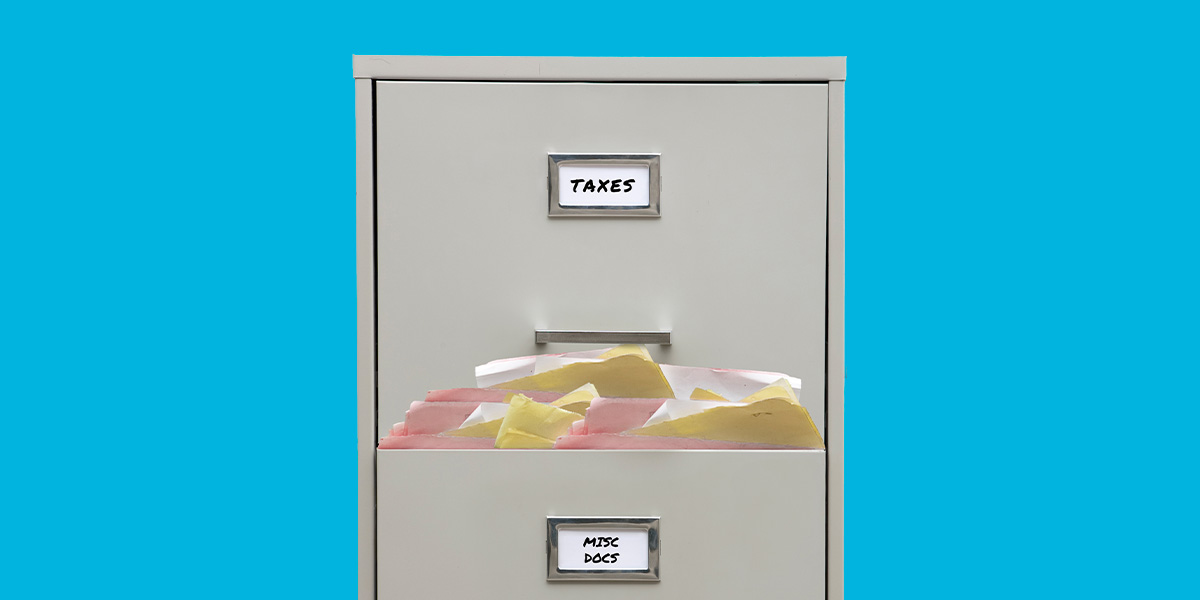-
Personal Banking -
Insights
Vacation Rental Scams & How to Avoid Them
Choosing the right place to stay for your vacation can be as time-consuming as it is exciting. For many travelers, vacation home rentals have become an increasingly popular choice. However, they can also be more susceptible to fraud because they operate on platforms where individuals list their own properties, rather than through established business models like hotels.
That is why it's crucial to remain vigilant when you're booking a vacation rental and be especially alert to the possibility of a scam. As with any financial transaction, it's always wise to remember that if an offer seems overly enticing, you should take a step back and double-check the details.
Common Vacation Rental Scams
Vacation rental scams have become an unfortunate reality for travelers. As reported by the FBI, over 11,500 individuals fell victim to online property or rental scams in 2021 with total losses exceeding $350 million.
With the rise in popularity of online booking and rental platforms, it's important for vacationers to be aware of the fraud that is taking place so they can avoid it.
Common scams for vacation home rentals include:
- Payment Redirection: When booking a rental, be wary of hosts who insist on conducting transactions outside of official rental platforms or established apps, especially if they try to lure you with tempting discounts. This is a huge red flag. By paying someone directly and bypassing booking platforms, you risk losing the protections and security measures those companies implement, and you're far more likely to fall victim to fraud.
- Fake Listings: A property that seems too good to be true often is. Scammers are known to steal images from vacation websites to create an appealing yet entirely fake listing. If a property catches your eye, do your due diligence and research the listing in more detail. Try doing a reverse image search or verifying the property address to confirm its legitimacy.
- Altered Images of Real Property: Even legitimate properties can be part of a scam if the images are modified or misleading. Be cautious when images appear heavily cropped, showcase minimal details or are stretched to give an illusion of space. Requesting additional images or even a virtual tour can give you a better idea of the true condition and layout of the property.
- Local Marketplace Scams: Sites like Craigslist and Facebook Marketplace can be breeding grounds for scam listings because they lack the controls that established rental companies put in place. In fact, 2021 statistics show that social media yielded greater profits for scammers compared to other platforms. While these local marketplaces can feature legitimate options, the lack of a verification process makes it easier for scammers to operate. Approach property listings on these platforms with caution and verify the accuracy of a property before committing to any agreements or payments.
How to Protect Yourself from Vacation Rental Scams
Navigating the vacation rental marketplace requires careful and informed decision-making.
Here are some strategies to help you avoid becoming a victim of rental scams:
Stay Within the Platform
Always handle your transactions and communications through trusted platforms. Popular sites like Airbnb and Vrbo have built-in safety measures to protect both renters and hosts from fraud. They will verify details of the property's listing, including images, amenities and the identity of the host. Stepping outside these platforms, even at the request of a host, increases your risk of falling victim to a scam.
Don't Rush Your Booking
Take your time when booking a rental. If a host pressures you to book quickly or offers a deal that seems too good to be true, it likely is. Always prioritize your safety over potential "great deals," and remember that credible hosts will understand your need for due diligence.
Interact with the Host
A simple conversation can reveal a lot. Use established channels to inquire with the host about local attractions, restaurants or activities. Genuine hosts should be familiar with the area and willing to provide recommendations. This not only helps confirm the legitimacy of the listing but also enhances your travel experience!
Use Secure Payment Methods
Always pay using the platform's secure payment system. When you pay through the platform, you're often insured against certain types of scams or fraudulent listings. Before finalizing any transactions, thoroughly review the platform's payment protection policies so you can ensure that any unfortunate occurrences are handled properly.
Avoid Direct Payment Methods
Steer clear of payment methods like gift cards or wire transfers. These methods are risky as they offer very limited, or no, recourse for recouping your money in cases of cancellations or disputes. Always familiarize yourself with the platform's terms and conditions, including their cancellation and refund policies, to avoid unexpected complications.
Verify the Rental's Location
Use Google Maps and street view to confirm the rental's location and appearance. This can help verify the property's existence and match it to the images in the listing.
Be Skeptical of Underpriced Rentals
While everyone loves a good deal, extremely low prices can be a red flag. Research other comparable properties in the area. If a price seems too good to be true, it often is.
Communicate Through Official Channels
While it might seem convenient to move to a different communication channel to chat with your host directly during booking, it's advised to keep all interactions within the platform's messaging system. This protects your privacy and ensures there is a record of all communications between you and the host.
Take a Look at the Host's Reviews
Carefully read all the host's reviews. Don't just glance at them or only read the perfect ones. Spend enough time to understand any issues or warnings from past guests. Look for feedback about the place, its condition, the neighborhood and the host to get a full picture of what you're booking.
Additionally, look at trustworthy third-party review sites to verify information. Some rentals will also have reviews on Google or on major booking sites.
Document Your Rental Upon Arrival
If the rental property does not match its description or photos upon arrival, document the discrepancies. Take pictures and save any relevant communication. This will be invaluable if you need to resolve any issues with the platform or property owner.
What to Do if You Have Been Scammed?
Realizing you've fallen victim to a scam can be upsetting. But it's important to get over the shock and act quickly and smartly to minimize the impact and help safeguard others from falling into the same trap.
If you think you've been scammed, here's a step-by-step guide on what to do:
1. Contact the Rental Platform Immediately
Notify the rental platform about your suspicions immediately. Websites like Airbnb have procedures in place to investigate fraudulent activities and can offer support and advice on the next steps to take.
2. Document Everything
Gather all communications, transactions and property listing details related to the rental. This includes messages with the host, payment confirmations and any pictures or details from the listing. This documentation will be important for investigations and refund requests.
3. Report to the Authorities
If you believe you are a victim of fraud, file a report with your local law enforcement agency. Provide them with all the documentation you have collected. You may also consider filing a complaint with the Federal Trade Commission (FTC). Reporting the incident can help in tracking down scammers and prevent them from targeting others in the future.
4. Inform Your Bank or Credit Card Company
If you have made any payments, contact your bank or credit card company immediately to inform them of the fraudulent activity. They can provide guidance on disputing the charges and may even be able to initiate a chargeback in some cases, depending on the circumstances.
5. Review Refund Policies
Revisit the refund and cancellation policies of the rental platform to understand your rights and options for seeking a refund in case of a scam.
6. Change Your Passwords
If you have shared any passwords or sensitive information with the scammer, change them right away to avoid potential identity theft. This includes passwords for the rental platform and your email account. Always use strong, unique passwords to help protect your accounts from unauthorized access.
7. Monitor Your Accounts
Keep a close eye on your bank account and credit card accounts for any unusual or unauthorized transactions. If you notice anything suspicious, report it to your financial institution immediately.
8. Share Your Experience
Consider sharing your experience on travel forums and sites like the Better Business Bureau (BBB) to warn other travelers about the scam. These detailed accounts can help others avoid the same scam.
9. Learn and Educate
Use this experience to familiarize yourself with common signs of vacation rental scams. Share this knowledge with friends and family to help them avoid falling victim to similar schemes.
This article is for general information and education only. It is provided as a courtesy to the clients and friends of City National Bank (City National). City National does not warrant that it is accurate or complete. Opinions expressed and estimates or projections given are those of the authors or persons quoted as of the date of the article with no obligation to update or notify of inaccuracy or change. This article may not be reproduced, distributed or further published by any person without the written consent of City National. Please cite source when quoting.





